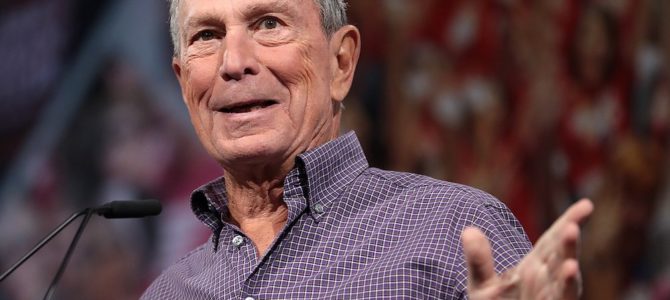
Former New York City Mayor Michael Bloomberg’s massive campaign spending—hundreds of millions of dollars and counting—appears to be paying off. One poll this week showed Bloomberg tied with Sen. Bernie Sanders in Virginia, each with 22 percent, and after garnering 19 percent in a national poll released Tuesday, Bloomberg has qualified for the Democratic presidential debate tonight in Las Vegas.
At first glance Bloomberg’s poll surge suggests the New York billionaire has a real shot at challenging Sanders, the current Democratic frontrunner, for the nomination. That in turn has prompted some pundits, including my colleague David Marcus, to speculate on whether Bloomberg should be taken seriously—not just as a contender for the Democratic nomination, but for the White House.
Don’t let these new polls lead you astray. Not only is Mike Bloomberg not going to be president, he almost certainly isn’t even going to be the Democratic nominee.
Why? For one thing, polls can only tell us so much (just ask Joe Biden). But the most straightforward reason is that much of politics is about charisma and likeability, and Bloomberg is excruciatingly bland and unlikeable. In that way he’s like an anti-Trump—a male version of Hillary Clinton, or a Joe Biden with all the baggage and none of the charm.
Trump’s Appeal Goes Far Beyond Wealthy Businessman
Consider one version of the pro-Bloomberg argument, that he’s a no-nonsense billionaire who can get things done. He’s even more successful than Trump!
This misapprehends Trump’s appeal. Trump didn’t just bring a billionaire businessman persona to the 2016 election, he brought charisma and an entire media brand. He was a household name, a TV celebrity and an entertainer in his own right, and had been for decades.
Trump could dismiss CNN and MSNBC because he personally had a bigger platform than those outlets. Millions of Americans didn’t just know him as a successful businessman but also as a showman and an entertainer who is good, if not great, with a crowd—funny and even weirdly charming at times.
Bloomberg has none of that. Until recently, most Americans likely knew him as the New York City mayor who tried to ban Big Gulps. Before long, they’ll know him as the billionaire who bought his way into the Democratic primary, or as the guy who couldn’t explain the information economy without insulting farmers and factory workers, or explain health care without arguing it’s a waste to give health care to old people. Or maybe as the boss who told a female employee to kill her baby.
Who Are These Hypothetical Bloomberg Voters?
Style and personality aside, Bloomberg’s candidacy has no coherent narrative, a fact attested to by his almost comically vapid campaign slogan, “Mike will get it done,” as meaningless and uninspiring as “Make America Great Again” is brilliant. Get what done, Mike? A soda ban?
The absence of a rationale for his campaign stems from the plain fact that in the current scheme of American politics, a socially liberal fiscal conservative like Bloomberg has no natural constituency. Think of it this way. Trump has more or less reshaped the GOP into a socially conservative, fiscally liberal party. (For all intents and purposes, fiscal conservatism has no home in American politics right now. You don’t pass a $1-trillion-and-a-half tax cut and then run up a $1-trillion-and-a-half deficit and still get to call yourself a fiscal conservative.)
On the other side, the increasingly socialist post-Obama Democratic Party is both socially and fiscally liberal. Sanders, for example, wants to spend he doesn’t even know how many trillions on universal health care and socialized college, along with whatever other spending a Green New Deal might call for. The other leading Democratic candidates are more or less on board with this, as they must be in a party now ruled by identity politics and the promise of free stuff.
Bloomberg doesn’t fit in either camp. His appeal is to the socially liberal, fiscally conservative voter—an increasingly rare species in American politics but one that nevertheless preferred Trump over Clinton in 2016. So far, Bloomberg hasn’t been on a single ballot or earned a single vote. His momentum, such as it is, consists mostly in social media ads and media hype.
Maybe, as my colleague Christopher Bedford has argued, Bloomberg isn’t really running for president, and his campaign is really just a super PAC masquerading as a campaign to buy him influence over the eventual nominee. At this point, that would make more sense than the idea of a candidate who repels almost every category of voter having a serious shot at the White House, let alone the Democratic nomination.
Or maybe it’s worse than that. Maybe the point of “Mike can get it done” is nothing more than a meaningless, astronomically expensive exercise in vanity.









